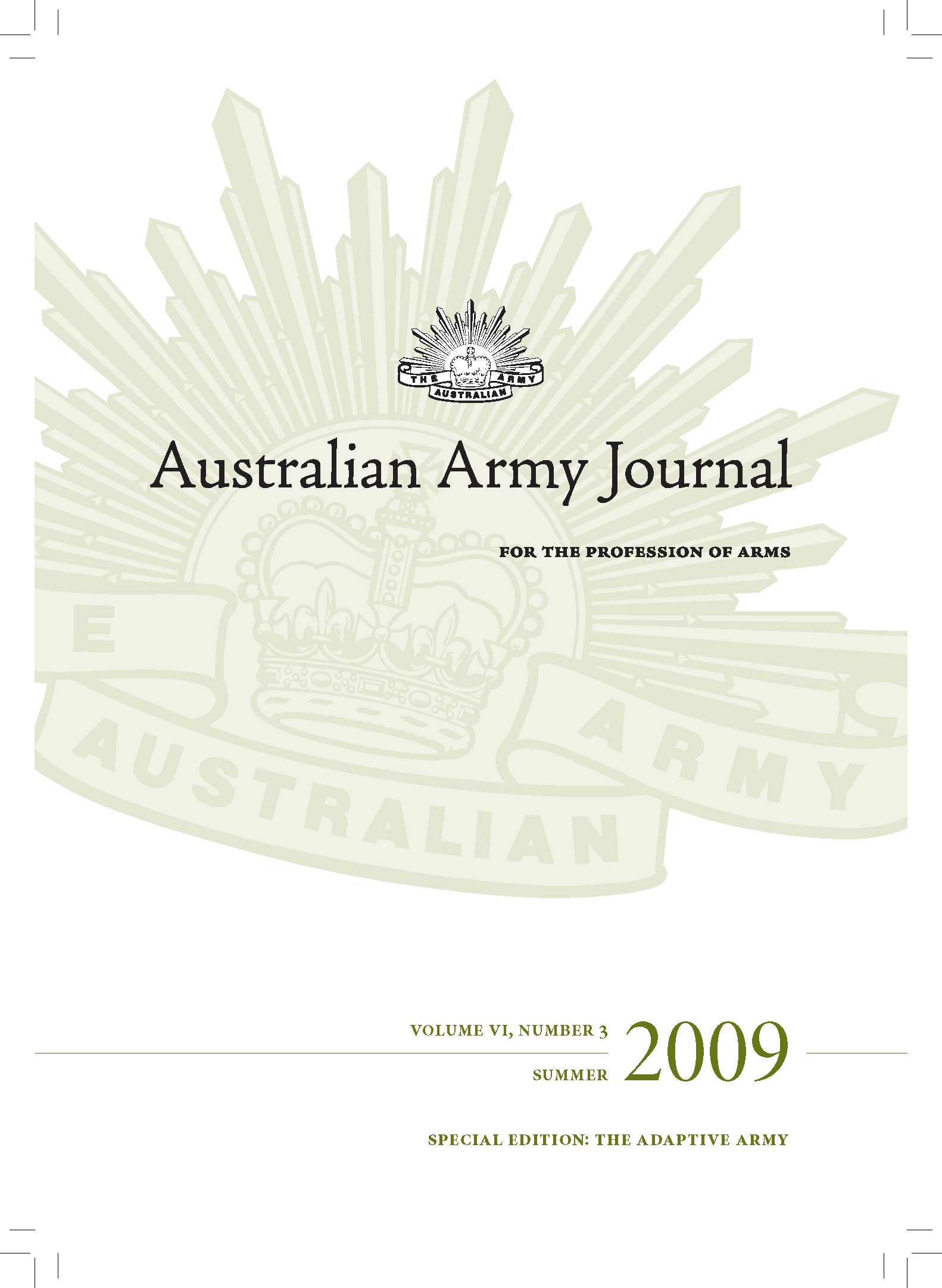In July 2008 the Chief of the Army Lieutenant General Ken Gillespie announced a significant program of changes under the rubric of Adaptive Army. It had become apparent during the period of increased operational tempo since 1999 that Army’s structures had become obsolescent. The system of Functional Commands, which had been in place since 1973, no longer reflected the way Army did business.
Indeed, Army’s higher command and control systems no longer adequately reflected the inherently joint nature of the Australian Defence Force’s (ADF) command and control arrangements. This had become especially significant in the light of the raising of Joint Operations Command (JOC). A rebalancing of Army’s command and control structures was long overdue.
However, in addition to more effectively aligning Army with extant ADF Joint Command arrangements, Adaptive Army aims to achieve significant internal improvements within the Army. The Army has been restructured to ensure that it is more effective and efficient in its conduct of force generation and force preparation. To support this end-state Army’s internal structures have been linked to different temporal adaptation cycles.
However, the Chief of Army has made clear that Adaptive Army is much more than an organisational change. It must also change the culture of the Army. Indeed, cultural change is vital if Army is to become more agile and adaptive in learning lessons and sharing them throughout the organisation. In particular, the proliferation of so-called ‘new media’ has created a challenging environment for traditional hierarchical organisations. Army is such an organisation and it derives great strength from its distinctive culture.
But in the age of Blackberries and blogs, organisations that cannot rapidly adapt to changes in their environment will fail. Rapid and efficient management of knowledge is essential to effectiveness. Adaptive Army postures Army to respond to the issues of force generation and the maintenance of foundation warfighting skills in this dynamic environment. Ultimately, every officer and soldier needs to commit to the practice of lifelong learning and adaptation for this culture to become embedded within the Army.
To support the Chief of the Army in the transition to the Adaptive Army, the Australian Army Journal has dedicated the entire contents of this, the Summer 2009-10 edition to its implementation. We are delighted to be able to lead the special edition with an introduction by the Chief of the Army which provides his perspective on what has been achieved to date and the areas in which he sees need for further work.
The remainder of the issue examines various aspects of Adaptive Army, including the Future Land Operating Concept as well as insights as to how other military organisations have coped with the rapidly changing information environment. In particular, we commend the articles by Warrant Officer Class One Dave Ashley, the RSM of Forces Command, on the need to empower junior leaders in order to implement the Adaptive Campaigning approach, and that of Brigadier Justin Kelly (Retired) which should resolve one of the recent controversies among readers of this Journal about the relevance of the so-called Boyd Cycle or OODA Loop.
We hope this special edition generates wide discussion and debate within Army. We hope that we are able to provide a forum for discussions that assist the Chief of Army in promoting a learning culture within Army. For that to happen we need readers of all ranks to engage with these issues and commit your thoughts to writing.
One officer who has regularly responded to this challenge is Colonel Roger Noble. He has been awarded the Chauvel Prize for the best essay published in the Australian Army Journal this year for ‘Beyond Cultural Awareness: Anthropology as an Aid to the Formulation of Military Strategy in the Twenty-First Century’, which appeared in the Winter 2009 edition.
As this edition reaches units many members will be preparing to take Christmas leave. To all members of the Australian Army and their families we wish you a merry and safe Christmas and a very successful New Year. To those deployed on operations around the globe who are unable to be with your families at this time, we especially wish you the compliments of the season and a safe return to Australia.

